50+ Sample Internship Proposal
-
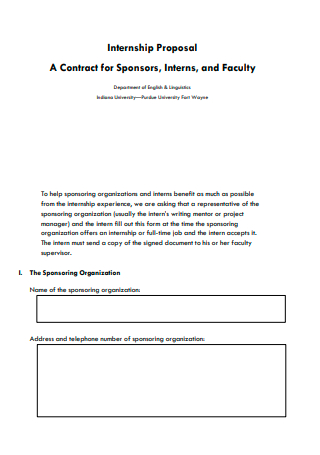
Internship Proposal Template
download now -
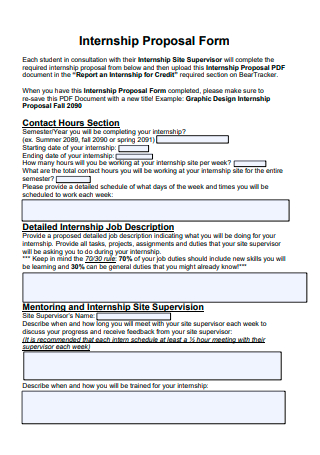
Internship Proposal Form
download now -
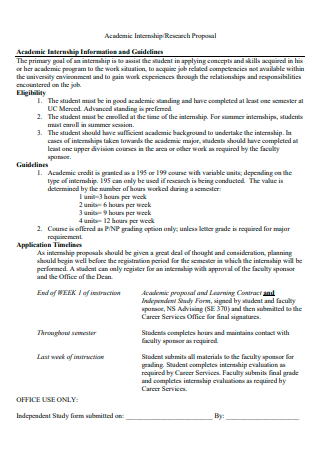
Academic Internship Research Proposal
download now -
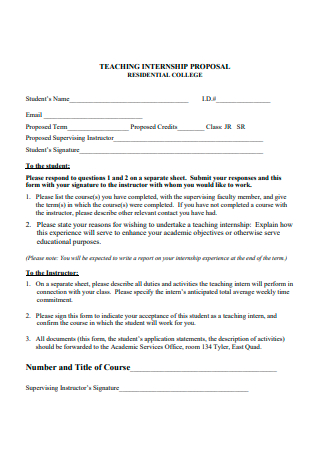
Teaching Internship Proposal
download now -
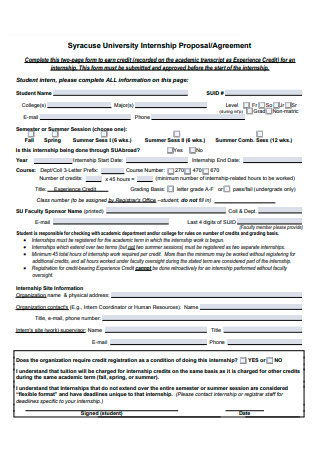
University Internship Proposal
download now -
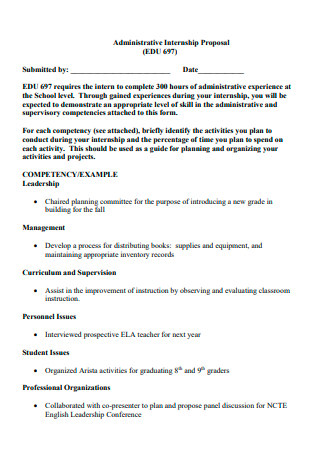
Administrative Internship Proposal
download now -
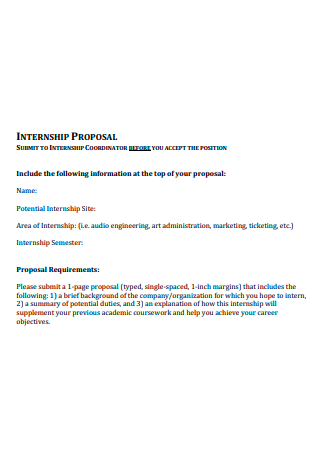
Standard Internship Proposal
download now -
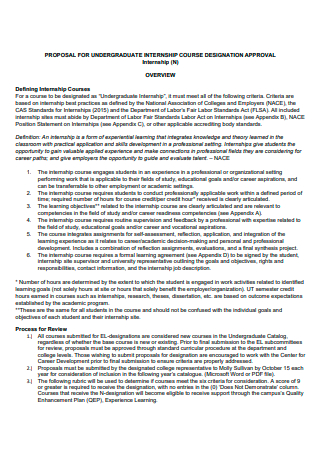
Internship Course Designation Approval Proposal
download now -
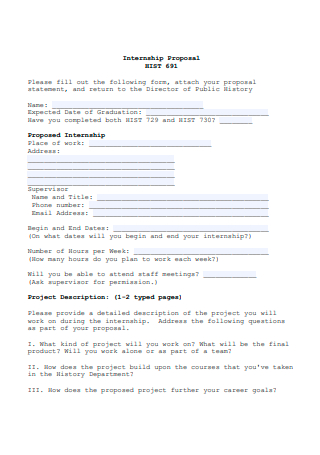
Formal Internship Proposal
download now -
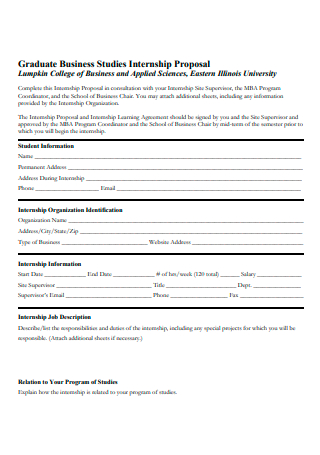
Graduate Business Internship Proposal
download now -
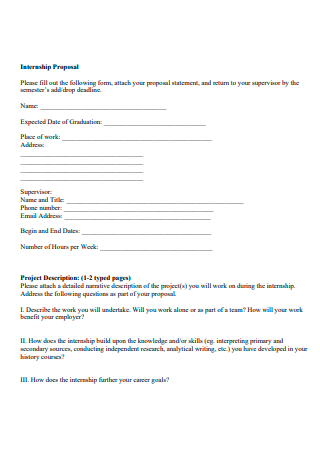
Basic Internship Proposal
download now -
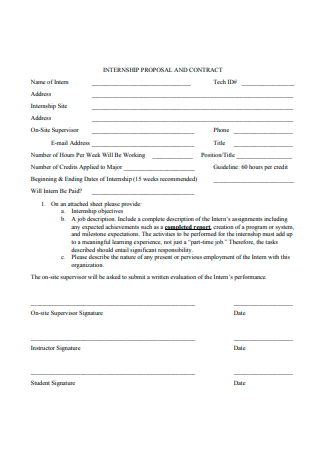
Internship Proposal and Contract
download now -
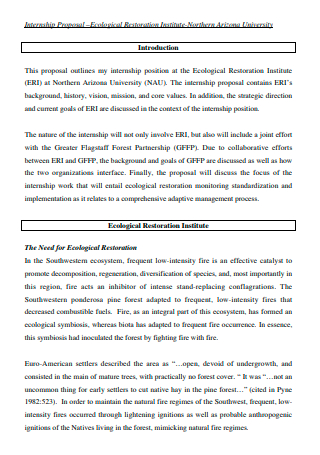
Internship Proposal in PDF
download now -
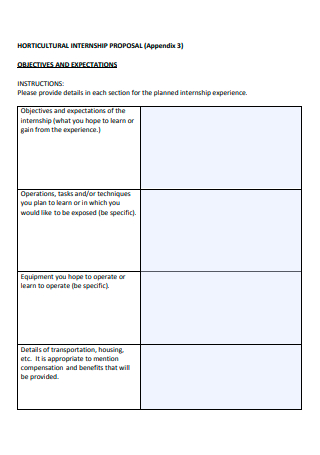
Horticultural Internship Proposal
download now -
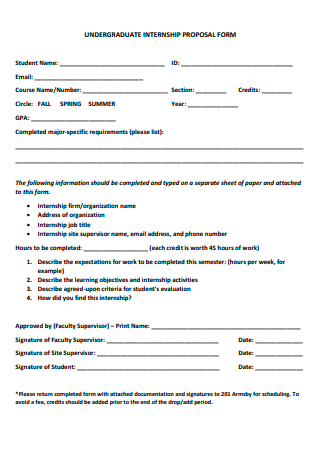
Undergraduate Internship Proposal Form
download now -
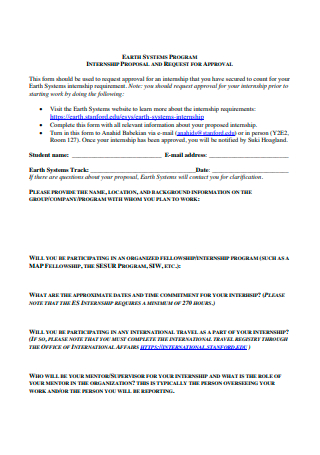
Internship Proposal and Request For Approval
download now -
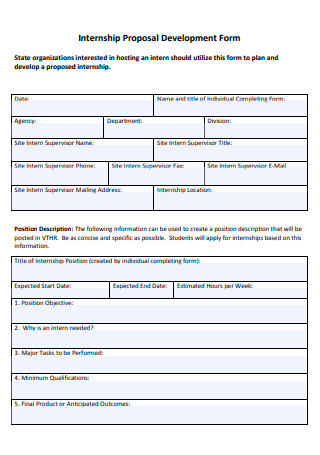
Internship Proposal Development Form
download now -
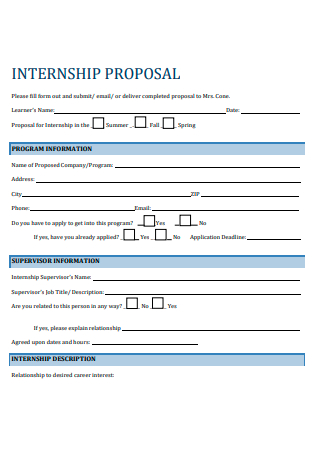
Internship Proposal Example
download now -
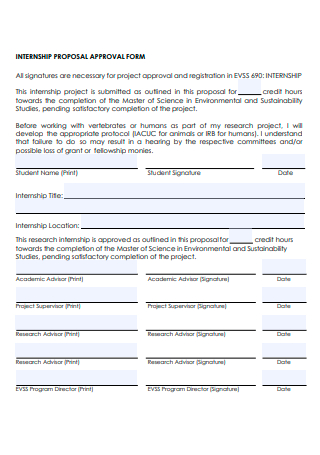
Internship Proposal Approval Form
download now -
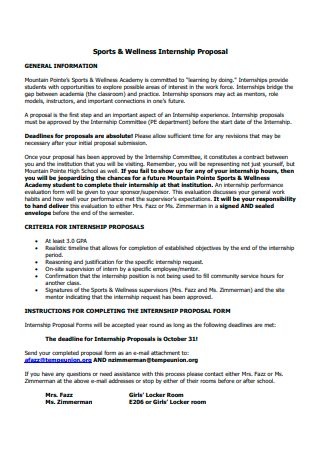
Sports and Wellness Internship Proposal
download now -
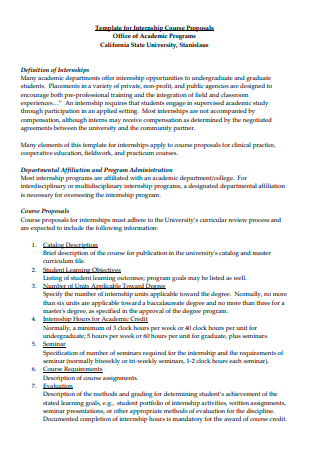
Internship Course Proposal
download now -
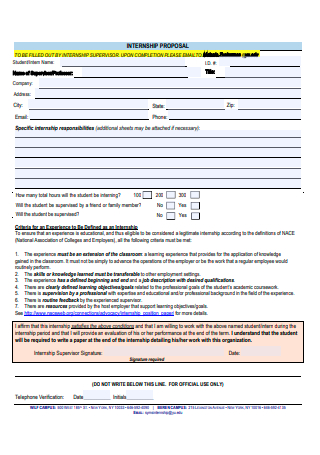
Internship Proposal Format
download now -
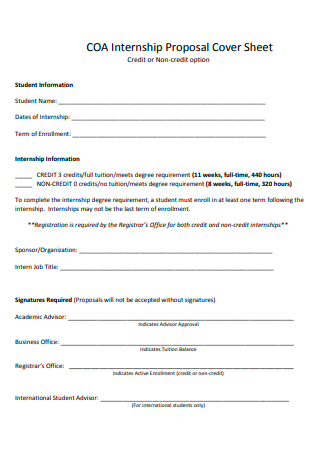
Internship Proposal Cover Sheet
download now -
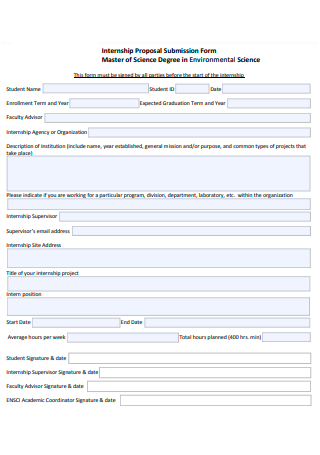
Internship Proposal Submission Form
download now -
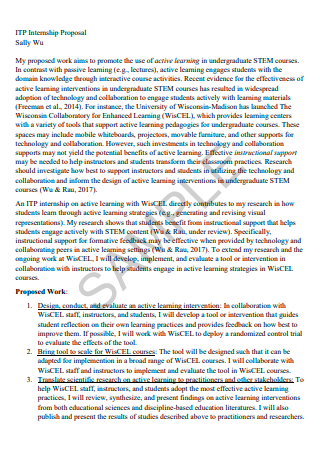
Sample Internship Proposal
download now -
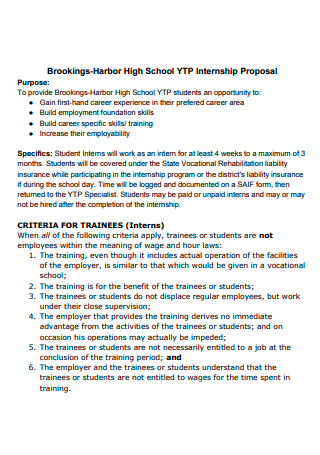
High School Internship Proposal
download now -
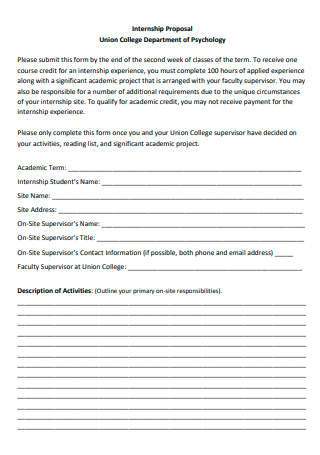
Union College Internship Proposal
download now -
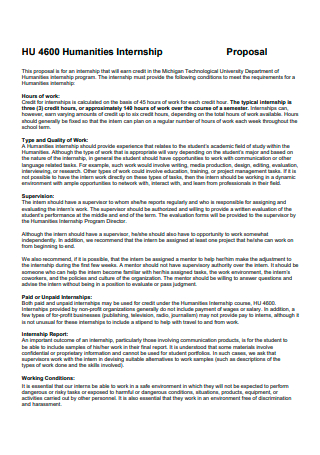
Humanities Internship Proposal
download now -
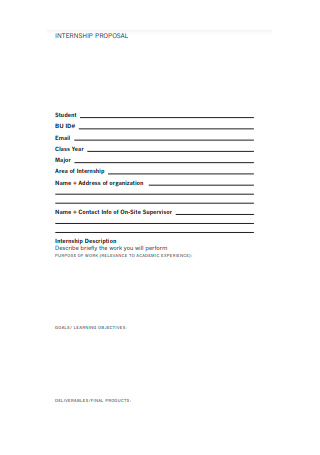
Simple Internship Proposal
download now -
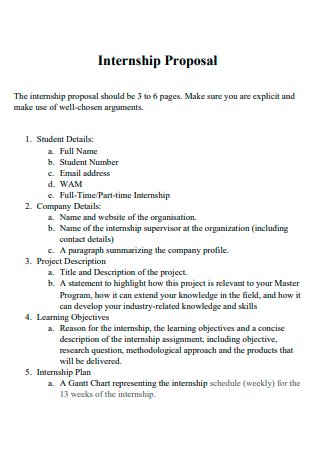
Printable Internship Proposal
download now -
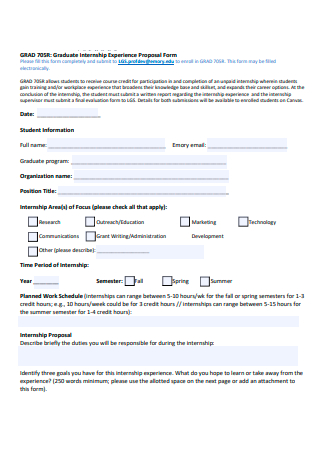
Graduate Internship Experience Proposal Form
download now -
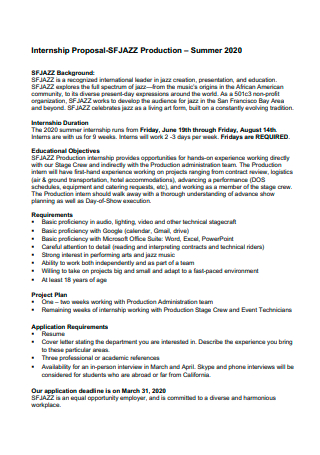
Production Internship Proposal
download now -
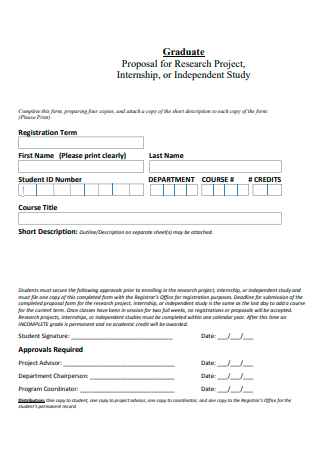
Internship Research Project Proposal
download now -
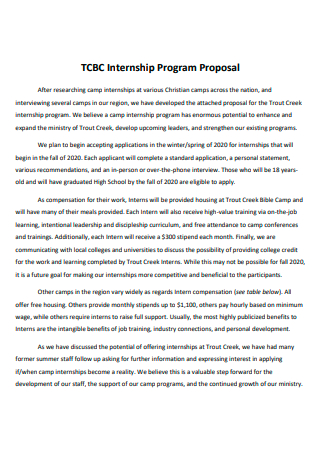
Internship Program Proposal
download now -
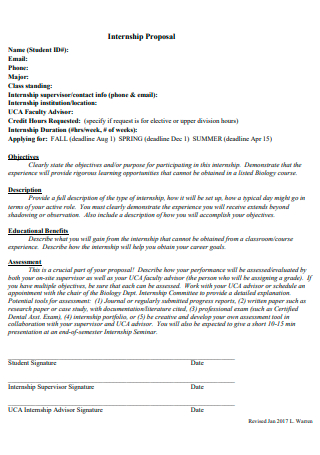
Draft Internship Proposal
download now -
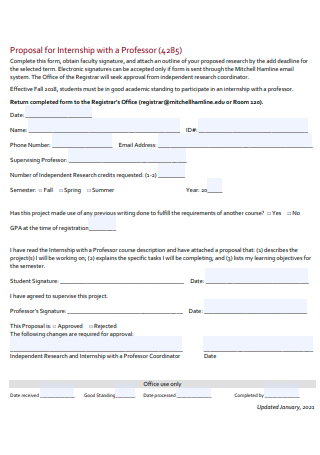
Professor Internship Proposal
download now -
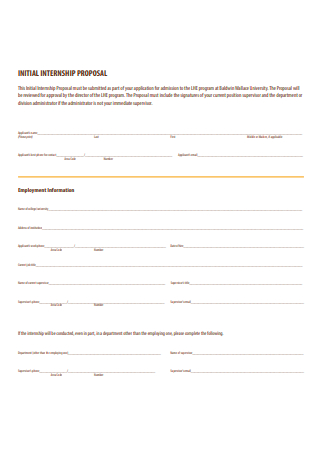
Initial Internship Proposal
download now -
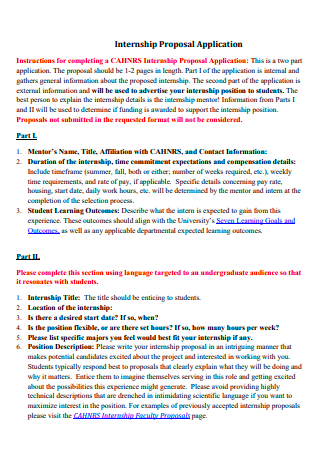
Internship Proposal Application
download now -
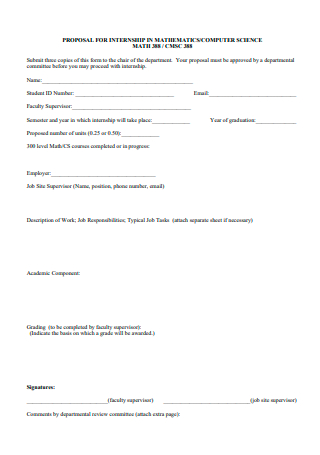
Mathematics and Computer Science Internship Proposal
download now -
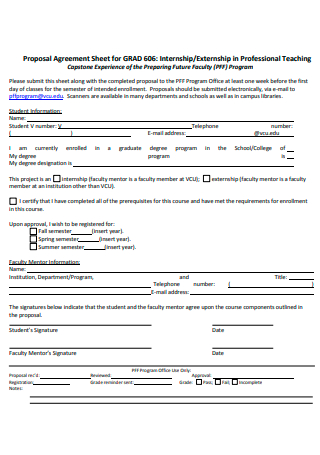
Internship in Professional Teaching Proposal
download now -
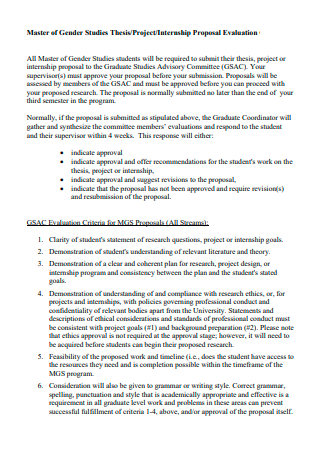
Internship Proposal Evaluation
download now -
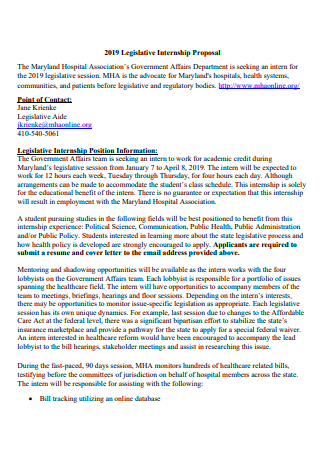
Legislative Internship Proposal
download now -
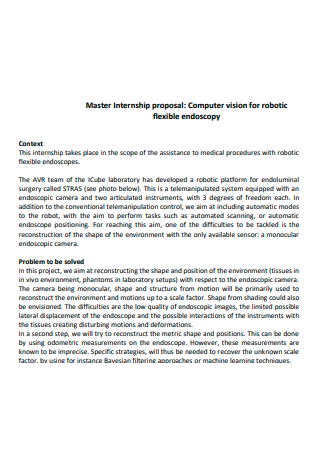
Master Internship Proposal
download now -
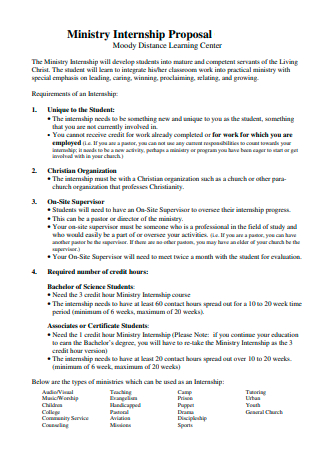
Ministry Internship Proposal
download now -
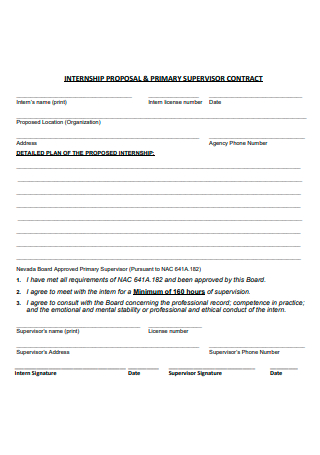
Internship Proposal and Primary Supervisor Contract
download now -
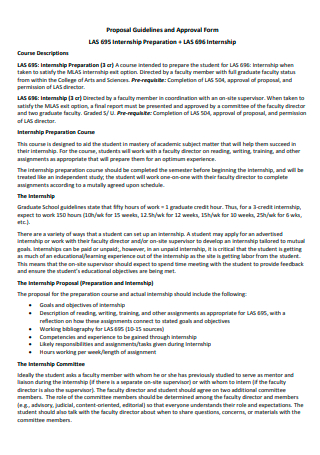
Internship Preparation Proposal
download now -
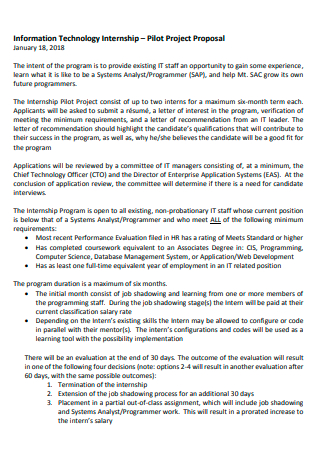
Information Technology Internship Pilot Project Proposal
download now -
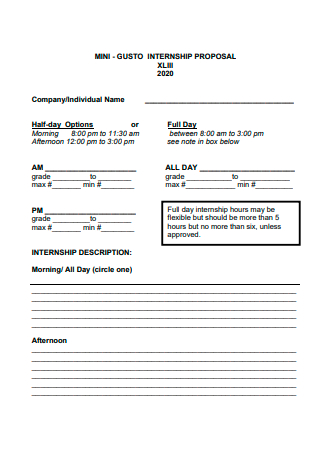
Mini Internship Proposal
download now -
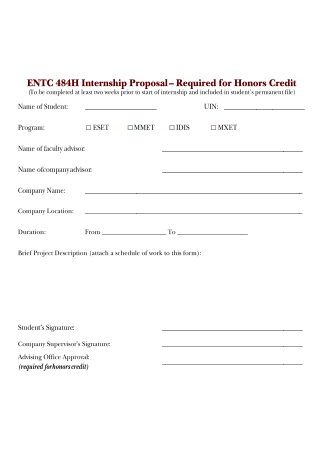
Honors Credit Internship Proposal
download now -
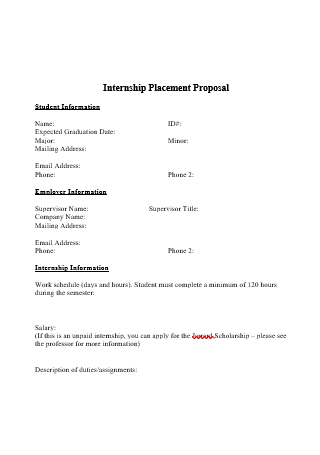
Internship Placement Proposal
download now -
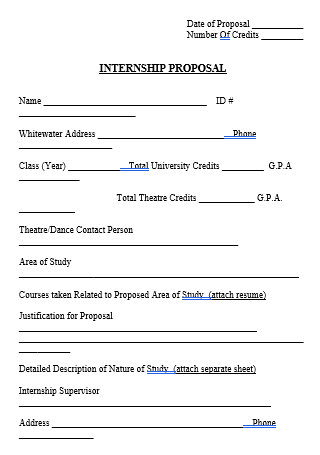
Internship Proposal in DOC
download now
FREE Internship Proposal s to Download
50+ Sample Internship Proposal
an Internship Proposal?
Benefits of Internships
How To Create an Internship Program
FAQs
What do you hope to gain from your internship?
How should a project proposal be formatted?
What kind of experience might I anticipate from an architecture internship?
What Is an Internship Proposal?
Internship proposals are official working agreements prepared by students describing the internship’s aims and expectations, which aid in determining how the internship’s success will be measured. They are created in collaboration with academic advisors, program chairs, and anybody else the university wishes to include. Essentially, an internship proposal outlines the internship’s activities and goals and ensures that the training meets the internship’s graduation requirements. Students must check with the employer to see what they are permitted to accomplish. The institution must guarantee that all regulations are followed, and the student must ensure that personal objectives are met. Once finished, the internship proposal provides that everyone is on the same page. Students are seizing internship opportunities at an increasing rate, and for a good reason. According to studies, internship experience increases one’s chances of finding a full-time job and earning a higher salary. As a result, businesses develop structured and frequently rewarding internship programs. These also serve as a talent pool for future hiring activities by a company. According to statistics, 70% of businesses offer interns full-time jobs, and 80% of students accept such offers. As a result, 56% of interns secure full-time employment as a result of their internships.
Benefits of Internships
An internship is a great method to get a taste of the career you wish to pursue. Employee training proposal is often organized through an educational advisor who may assist you in finding a company that matches your professional objectives. Because organizations must often meet academic standards for internships, you may be exposed to various parts of a company’s business operations questionnaires to assist you in exploring the work you want to do full-time. In this article, we’ll go over ten significant advantages of interning.
How To Create an Internship Program
Creating an internship plan with the program is an excellent approach to recruit new talent while also providing students and recent graduates with the chance to obtain experience in their area. An internship program allows your firm to mold and develop young, talented individuals who can bring new ideas and ways of innovation to the table. Interns start at a low wage and frequently advance to full-time positions. Here are six measures to follow if your organization wants to create an internship program, even if it’s a remote one.
Step 1: Employ a coordinator for internships.
One of the reasons internship programs fail is that they do not have a leader in charge who has a clear vision statement. When you first want to start an internship program, hire an internship coordinator to design it and oversee its implementation. It isn’t necessary to hire someone from the outside. Indeed, assigning these functions to one or two full-time employees familiar with the company’s operations may be helpful. Ensure that this internal personnel has enough time to focus on their full-time jobs while also mentoring the interns.
Step 2: Look into the internship laws in your state.
Before you start working on your program, make sure you know your state’s criteria for hiring interns. Some jurisdictions require interns to be paid, while others only ask for college credit in exchange. The minimum salary, their compensation, their protection under company policy proposal, and whether they are eligible for specific benefits from your organization are all influenced by how your state classifies interns.
Step 3: Set attainable objectives for the program.
New internship programs can occasionally be overly ambitious in their smart goals. Once the duration of the internship and the number of interns are determined, you may create plans for how your interns will operate inside your system. You can assign them to a few large projects or assist with your profession’s long-term duties while maintaining a daily plan. Regardless of how your interns work at your firm, you should track their progress and provide them with progress reports during the internship to ensure they meet their goals by the end.
Step 4: Establish a procedure for application.
Consider the types of interns you want to attract to your organization and how they might demonstrate those characteristics during the application process. Perhaps a cover letter and resume will serve, but most college students and recent grads lack relevant employment experience. Consider thinking creatively by requesting personal essays, samples of their work, or internship letters of recommendation. Additionally, consider the interview process and the questions you’d like to ask them.
Step 5: Appoint mentors for each intern.
After hiring your interns and learning about their personal and professional objectives and ambitions, pair them with a mentor within your firm. This establishes an ardent connection within the organization and provides them with learning and feedback using the feedback forms. You are not required to pair them with senior staff. It may be more helpful to learn from entry-level or junior-level personnel who have taken a similar road and share comparable professional objectives. Associating them with someone their same age can also assist your interns in gaining knowledge of the corporate culture and forming social relationships.
Step 6: Concentration on intern development.
Given that many of your interns will be working in a professional setting for the first time, you’ll want to make sure they’re learning strategic plans for your business and growing as individuals. Once a week, have your internship supervisor meet with just the interns to establish a relationship, examine what they’re learning, and be aware of any challenges they’re experiencing. Your coordinators should bring in additional staff to share their experiences, discover the interns, and answer their questions. Help the interns follow up with any speakers who struck a chord with them with their permission.
FAQs
What do you hope to gain from your internship?
You can anticipate spending most of your time on the job on low-level clerical and administrative chores such as scheduling appointments, filing, answering the phone, and data entry. Do not be discouraged if that is the extent of your internship duties.
How should a project proposal be formatted?
Often, a project proposal may contain a Gantt chart showing the Project’s resources, tasks, and schedule. Deliverables for the Project This section contains a list of all the deliverables you anticipate seeing once the Project is complete. This could be products, data, or reports that you intend to deliver to a client.
What kind of experience might I anticipate from an architecture internship?
Intern architects assist architects with all elements of architectural work. Their tasks and duties may include managing project files, researching construction locations, zoning rules and regulations, and producing client presentations.
While this is not assured, most employers are constantly looking for ways to value their firm. Through an internship, you can demonstrate your abilities, commitment, and worth to a prospective employer. Additionally, employers will be more receptive to hiring you if they have committed time and money. With these things in mind, an internship is critical for your future job. Training provides the required building blocks for laying the groundwork for a successful career. Therefore, the next time you’re on a gap year or summer break, consider pursuing a meaningful internship to help you work toward your future.
